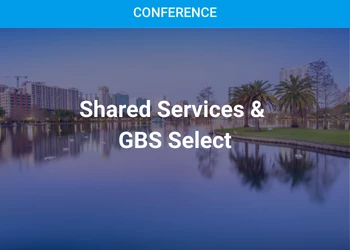Setting Up an Offshore Shared Services Center - Location, Location, Location (Part 1)
Add bookmarkWe have heard it all before: What are the three most important ingredients of success when setting up a new business?: LOCATION, LOCATION, LOCATION!! Well, granted that shared services centers (SSCs) are not a retail business…but the premise that location is supremely important to the success of the venture is as true of shared services as it is of retail activities. The difference is, of course, that location in the case of shared services refers oftentimes to a distant country, while that of a retail activity usually refers to a particular address in a familiar city. This first part of this article considers some of the factors that affect the country location decision for shared services centers; the second part looks at the strengths and weaknesses of various country locations (for the second part of this article, click here). Many readers have been making these important decisions for some time, and have built your own models and criteria for analyzing the various options available to your organizations. The author would welcome your feedback regarding the points made below.
Developing an approach to the offshore site selection process involves thorough research, and a willingness to suspend judgement regarding foreign cultures and customs. One of the great enemies can be first impressions and gross generalizations. It is important to note the more subjective criteria for country selection, that don't always appear on the mandatory checklists.
Building a Checklist for Evaluating Country Location Options
Within any given country, there are many options, from well-established outsourcing centers, to areas that have not yet developed the infrastructure requirements to support the growth of IT-enabled companies. While the latter present more challenges to companies seeking to set-up, they also offer opportunities, such as first access to the labor pool, lower cost of office space, more responsive government bodies, greater financial incentives to locate, etc. Here are some checklist items that are relevant in the decision process:
1. Compensation costs
What is the wage scale for the different levels of staff to be hired? What benefits are mandated by law (e.g., 13th month)? What is the projected impact of inflation on wages and benefits? How competitive is the market for the required skills? What are the hiring costs? Are there any hidden costs of employment, mandatory or discretionary, that should be identified?
2. Staff availability and turnover
Are the skills available to meet company requirements? Does the education system produce qualified graduates? Are there a sufficient number of qualified staff at the different levels? What is the expected turnover rate? What are the regulations regarding contractual workers? Does the labor code in the country restrict employment in any way? Are there tax incentives for training of staff? Are visas an issue if overseas training is anticipated?
3. Infrastructure costs
What are typical rental costs in different locations within the country? Is it feasible to construct a purpose-built facility? How much are projected electricity and telecommunication costs? Are there possibilities for expansion of the facility? What is the status of telecommunication links and is adequate redundancy built into the system? Is the electricity supply reliable and sufficient? Is there a need for back-up power? Do weather conditions play a role?
4. Tax and regulatory costs
Are there tax incentives or trade agreements that can benefit the potential investment? What are the differences in incentives being offered at the local government level to attract investment and employment? How will the company be affected by fluctuating exchange rates? What corporate structure is most advantageous to the company? Is it necessary to have a local partner in the country, or can equity be held 100% by the locating company? What are the costs of setting-up in the country?
5. Government support and the political climate
Aside from the matter of tax incentives and concessions offered by the national and local government, there are other areas of concern. What support is provided by the Government to help facilitate the growth and development of shared services centers in the country? Is the Government stable and can it be relied upon for consistency of policies, rules and regulations? Can the judicial system be relied upon to provide equitable and objective judgement in the case of disputes? Is the economy stable, and is labor unrest an issue? Are unions prevalent in the industry? Are local subsidiaries of foreign companies welcomed?
6. Labor pool and educational system
How large is the total workforce in locations being considered? How many college graduates are produced every year (or term)? Of these, how many have majored in IT, engineering, math, science, or other related specializations? How supportive are educational institutions of the IT and BPO industries in the location?
7. Language proficiency and cultural affinity
How proficient are locals in the language of the center? What structures are available to rapidly enhance language skills? Is English the primary language in the country's school/university system? How closely related are the cultures of the country's involved? Are the legal, accounting and educational systems similar? To what degree would cultural issues need to be addressed?
8. Physical proximity and time zones
Is the facility to be operated on a 24/7 basis? What is the time zone difference between the shared services company and the source of the business being processed? To what extent is real-time contact between the two important to efficient operation of the center? How much travel will there be between the locations? Do courier services exist that can ensure secure transmittal of hard-copy documents, if required?
9. Experience and maturity in the industry
What is the existing IT and BPO market size? How many companies have invested in a shared services center in the country? How established is the location in related fields? Are the required support services (lawyers, accountants, placement firms, security firms, etc.) available?
10. Security and data protection
What are the anti-piracy laws in the country? What are the investor ratings of intellectual property protection? How is the government ensuring compliance with laws? Is there a way to determine the trustworthiness of potential employees? Are security concerns taken seriously, and adhered to on a general basis?
11. The comfort factor
If expats will be assigned to work at the SSC, is the living/working environment receptive to their needs (safety, schools, social life, housing, etc.)? In the case of visitors to the center, does the location offer first-class hotels, restaurants, and a safe and secure environment in which to operate? Are flight schedules convenient and is the airport close by?
Onshore vs. Nearshore vs. Offshore
Deciding on a location for your SSC requires weighing each issue against your organization's own objectives. Three business strategies should also be examined.
1. Onshore
Onshore means that the shared services provider is located in the same country as the mother organization, and allows close physical monitoring. However, in onshore engagements, the cost of operations (i.e. average wages, infrastructure costs and tax burdens) would be very similar to current expenses. Hence, the objectives of shared services may only be attained if the service provider has these specific capabilities:
- a niche domain expertise
- a common infrastructure or IT system that may reduce cost of operations
- operational superiority compared to the company's internal standards
2. Nearshore
Nearshore operations usually mean that the location of the shared services provider has a common border with the head organization. If the nature of the business requires constant interaction between the SSO and the principal company, then the nearshore business model might be considered. Such operations are seen as both complementary and alternative options to onshore or offshore operations. Advantages include relative cost advantage over local services, as well as significant language and cultural affinity. In addition, nearshore arrangements could benefit from trade agreements that may exist between the company's location and the shared services destination. Also, there could be a resemblance in the business structures and legal structures, which is useful in daily operations.
3. Offshore
Offshoring is the use of a foreign location to deliver benefits or achieve goals that may not necessarily be available to local providers. This strategy aims to manage the different offshore locations' competencies in relation to the company's goals and objectives. One direct advantage of this business model is the significant cost savings, in manpower, technology and overall operations. In addition, an offshoring strategy provides an organization with such unique benefits as the ability to have round-the-clock operations with the 12-hour time zone differences. It also gives a company access to talent and technology not necessarily available within their locality.
(For the second part of this article, click here.)
[eventpdf]






















